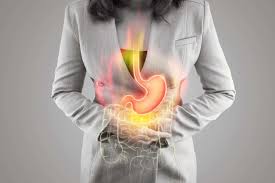Ulcers are a prevalent yet often misunderstood health issue that affects millions of people worldwide. Contrary to popular belief, ulcers aren’t solely the result of stress or spicy foods; they are a complex medical condition with various contributing factors. In this article, we’ll delve into the intricacies of ulcers, exploring their causes, symptoms, treatment options, and preventive measures.
Understanding Ulcers:
Ulcers are open sores that can develop on the lining of the digestive tract, typically in the stomach or the upper part of the small intestine. The most common types of ulcers are gastric ulcers, which occur in the stomach, and duodenal ulcers, which develop in the upper portion of the small intestine.
Causes of Ulcers:
- Helicobacter pylori Infection: This bacterium is a major culprit in the development of ulcers. It weakens the protective mucous lining of the stomach, making it more susceptible to damage from stomach acids.
- Non-Steroidal Anti-Inflammatory Drugs (NSAIDs): Regular use of NSAIDs like aspirin and ibuprofen can irritate the stomach lining and contribute to ulcer formation.
- Excessive Acid Production: An overproduction of stomach acid can erode the protective lining, leading to ulceration.
- Smoking and Alcohol Consumption: Both smoking and excessive alcohol intake can compromise the stomach lining, making it more susceptible to ulcers.
Symptoms of Ulcers:
The symptoms of ulcers can vary, and some individuals may not experience any symptoms at all. However, common signs include:
- Burning stomach pain: This pain is often felt between meals or during the night.
- Nausea and vomiting: The presence of blood in vomit or stool may indicate a bleeding ulcer.
- Unintended weight loss: Chronic ulcers can lead to a gradual loss of appetite and weight.
Treatment Options:
- Antibiotics: If the ulcer is caused by an H. pylori infection, a course of antibiotics is often prescribed to eliminate the bacteria.
- Proton Pump Inhibitors (PPIs) and H2 Blockers: These medications reduce stomach acid production, providing relief and allowing the ulcer to heal.
- Antacids: Over-the-counter antacids can help neutralize stomach acid and alleviate symptoms.
- Lifestyle Changes: Quitting smoking, limiting alcohol intake, and avoiding NSAIDs can play a crucial role in ulcer management.
Preventing Ulcers:
- H. pylori Screening: Regular testing for H. pylori can help identify and treat infections before ulcers develop.
- Medication Management: If you require NSAIDs for pain relief, consult your healthcare provider about alternative options or consider protective medications.
- Healthy Lifestyle Choices: Adopting a balanced diet, exercising regularly, and managing stress can contribute to a healthy digestive system.
Conclusion:
Ulcers are a serious medical condition that requires attention and proper management. By understanding the causes, recognizing symptoms, and adopting preventive measures, individuals can take control of their digestive health. If you suspect you have an ulcer or are experiencing persistent digestive issues, it’s crucial to consult with a healthcare professional for a thorough evaluation and personalized treatment plan. Remember, early detection and intervention are key to a faster and more effective recovery.






























